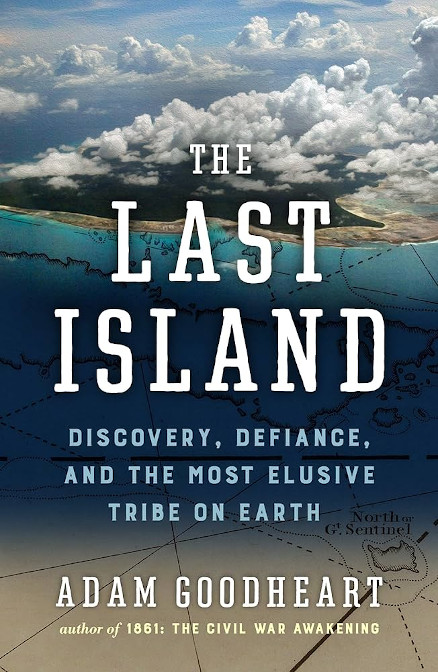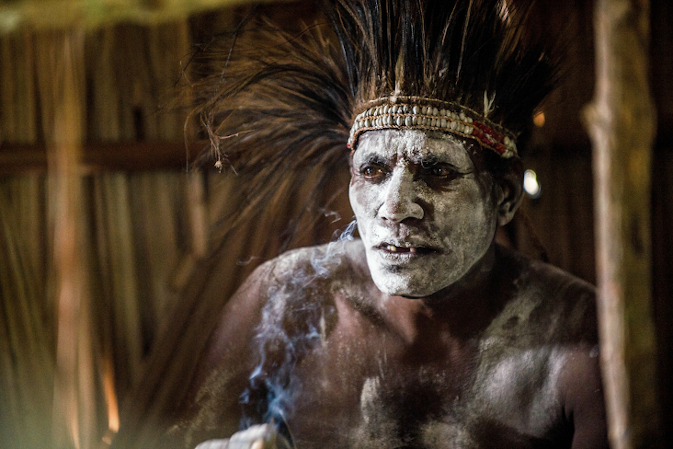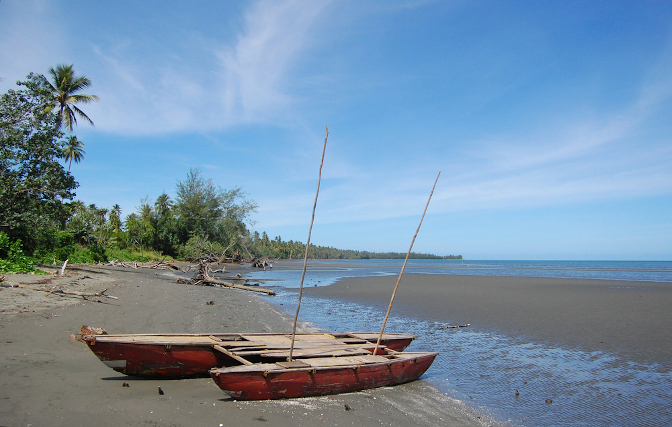Uncontacted Tribe Lives Far off the Grid in ‘The Last Island’

(Photo credit: Depositphotos.com)
The Last Island: Discovery, Defiance, and the Most Elusive Tribe on Earth
By Adam Goodheart
Godine
272 pages
There’s “off-the-grid” and then there’s far off-the-grid. In his new book, The Last Island, author and journalist Adam Goodheart explores the trials and tribulations of one of the last uncontacted tribes on earth, secluded from the world in the faraway eastern Indian Ocean.
North Sentinel Island, part of an isolated archipelago called the Andaman Islands, caught the attention of world media in 2018, when John Chau, a feckless American evangelical Christian, attempted to convert the uncontacted tribe living on the island. On his third attempt to interact with tribe members (after first being driven off under bow-and-arrow assaults), Chau paid the ultimate price for his missionary hubris:
“Later, the waiting fishermen glimpsed a group of natives dragging a lifeless body across the sand. The young American had failed to advance more than a few yards into Sentinelese territory, let alone dislodge Satan.”

This episode, the latest in a centuries-old effort of various nations to either welcome or subdue the Andamanese inhabitants, rekindled Goodheart’s interest in uncontacted tribes. In fact, he had previously journeyed to the remote archipelago in the mid-1990s, and reports of Chau’s death prompted him to renew his explorations into this uniquely 21st-century phenomenon.
The resulting narrative, The Last Island, offers a clear-eyed yet sympathetic portrait of a small, beleaguered tribe striving to remain beyond the reach of modern civilization.
“The island has almost wholly eluded all the devices and contrivances that have connected tribe to tribe, island to island, continent to continent. The written word. The compass and sextant. The steam engine. The radio. The smartphone. And no matter how much its inhabitants have managed to glean about the outside world from their glancing contacts—which is probably a good deal—there is no way they can know that their little home is the last place of its kind on this planet.”

(Photo credit: Depositphotos.com)
Those of us in the hyper-connected world—that is, just about all other beings around the world—have, it seems, a perverse fascination with tribes who repudiate all contact with the outside world or are justifiably fearful of external contamination. It’s almost impossible to imagine a life devoid (or blessedly relieved) of modern “conveniences.” Many of these tribes, holding out against all costs, live in the Amazon Basin and Papua New Guinea, “a vanishingly tiny sliver of our species, at most ten thousand of the eight billion humans now on earth.”
Goodheart describes at length the troubled history of the Andaman Islands, beset by occasional (and not always well-meaning) intruders. Sadly, these benighted incursions have, over the years, resulted in waves of infectious diseases, from measles to syphilis, that devasted the archipelago’s native populations. The Sentinelese, perhaps understanding all too well the price of being contacted, have so far resisted all attempts to be dragged into modern times.

(Photo credit: Depositphotos.com)
In his own forays to North Sentinel Island, Goodheart cautiously circles the region but makes only slight contact of his own. Nonetheless, The Last Island offers an insightful look at the dilemmas faced by uncontacted tribes, and a poignant view of what it means to opt out of the modern day:
“With eyes as shrewd as any explorer’s, the Sentinelese look at all that we have to offer them—our planes, our plastics, our inflatable boats, and our waterproof Bibles—and say: Thanks, anyway. We’d rather not.”
Author Bio:
The Confessions of Gabriel Ash is the new novel by Highbrow Magazine chief book critic Lee Polevoi.
For Highbrow Magazine
Image Sources:
--Godine































































































































































































































































































































